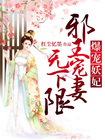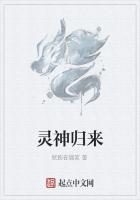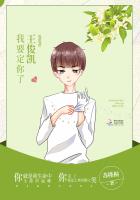In the Beckenham days and in the early Chiselhurst days he was chiefly interested in getting money, and except for his onslaught on the Beckenham house, bothered very little about his personal surroundings and possessions. I forget now when the change came and he began to spend. Some accident must have revealed to him this new source of power, or some subtle shifting occurred in the tissues of his brain. He began to spend and "shop." So soon as he began to shop, he began to shop violently. He began buying pictures, and then, oddly enough, old clocks. For the Chiselhurst house he bought nearly a dozen grandfather clocks and three copper warming pans. After that he bought much furniture.
Then he plunged into art patronage, and began to commission pictures and to make presents to churches and institutions. His buying increased with a regular acceleration. Its development was a part of the mental changes that came to him in the wild excitements of the last four years of his ascent. Towards the climax he was a furious spender; he shopped with large unexpected purchases, he shopped like a mind seeking expression, he shopped to astonish and dismay; shopped crescendo, shopped fortissimo, con molto espressione until the magnificent smash of Crest Hill eroded his shopping for ever. Always it was he who shopped. My aunt did not shine as a purchaser. It is a curious thing, due to I know not what fine strain in her composition, that my aunt never set any great store upon possessions. She plunged through that crowded bazaar of Vanity Fair during those feverish years, spending no doubt freely and largely, but spending with detachment and a touch of humorous contempt for the things, even the "old" things, that money can buy. It came to me suddenly one afternoon just how detached she was, as I saw her going towards the Hardingham, sitting up, as she always did, rather stiffly in her electric brougham, regarding the glittering world with interested and ironically innocent blue eyes from under the brim of a hat that defied comment. "No one," I thought, "would sit so apart if she hadn't dreams--and what are her dreams?"
I'd never thought.
And I remember, too, an outburst of scornful description after she had lunched with a party of women at the Imperial Cosmic Club. She came round to my rooms on the chance of finding me there, and I gave her tea. She professed herself tired and cross, and flung herself into my chair....
"George," she cried, " the Things women are! Do _I_ stink of money?"
"Lunching?" I asked.
She nodded.
"Plutocratic ladies?"
"Yes."
"Oriental type?"
"Oh! Like a burst hareem!... Bragging of possessions.... They feel you. They feel your clothes, George, to see if they are good!"
I soothed her as well as I could. "They ARE Good aren't they?"
I said.
"It's the old pawnshop in their blood," she said, drinking tea; and then in infinite disgust, "They run their hands over your clothes--they paw you."
I had a moment of doubt whether perhaps she had not been discovered in possession of unsuspected forgeries. I don't know. After that my eyes were quickened, and I began to see for myself women running their hands over other women's furs, scrutinising their lace, even demanding to handle jewelry, appraising, envying, testing. They have a kind of etiquette.
The woman who feels says, "What beautiful sables?" "What lovely lace?" The woman felt admits proudly: "It's Real, you know," or disavows pretension modestly and hastily, "It's Rot Good." In each other's houses they peer at the pictures, handle the selvage of hangings, look at the bottoms of china....
I wonder if it IS the old pawnshop in the blood.
I doubt if Lady Drew and the Olympians did that sort of thing, but here I may be only clinging to another of my former illusions about aristocracy and the State. Perhaps always possessions have been Booty, and never anywhere has there been such a thing as house and furnishings native and natural to the women and men who made use of them....
VI
For me, at least, it marked an epoch in my uncle's career when I learnt one day that he had "shopped" Lady Grove. I realised a fresh, wide, unpreluded step. He took me by surprise with the sudden change of scale from such portable possessions as jewels and motor-cars to a stretch of countryside. The transaction was Napoleonic; he was told of the place; he said "snap"; there were no preliminary desirings or searchings. Then he came home and said what he had done. Even my aunt was for a day or so measurably awestricken by this exploit in purchase, and we both went down with him to see the house in a mood near consternation.
It struck us then as a very lordly place indeed. I remember the three of us standing on the terrace that looked westward, surveying the sky-reflecting windows of the house, and a feeling of unwarrantable intrusion comes back to me.
Lady Grove, you know, is a very beautiful house indeed, a still and gracious place, whose age-long seclusion was only effectively broken with the toot of the coming of the motor-car.















